Video broadcast on Sri Lankan television and on social media showed protesters entering President's House -- Rajapaksa's office and residence in the commercial capital -- after breaking through security cordons placed by police.
Images show demonstrators inside the building and hanging banners from the balcony, as well as swimming in the residence's pool.
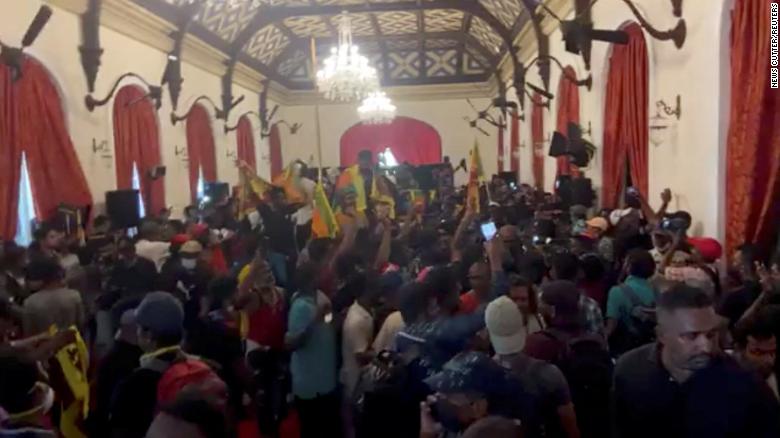 Demonstrators protest inside Gotabaya Rajapaksa's residence, in Colombo, Sri Lanka, in this screengrab obtained from a social media video on July 9, 2022.
Demonstrators protest inside Gotabaya Rajapaksa's residence, in Colombo, Sri Lanka, in this screengrab obtained from a social media video on July 9, 2022.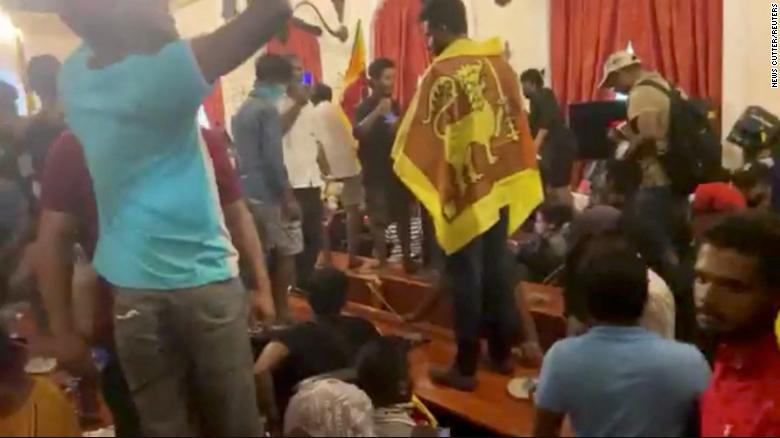 Rajapaksa is not at his official residence, where protesters are pictured.
Rajapaksa is not at his official residence, where protesters are pictured.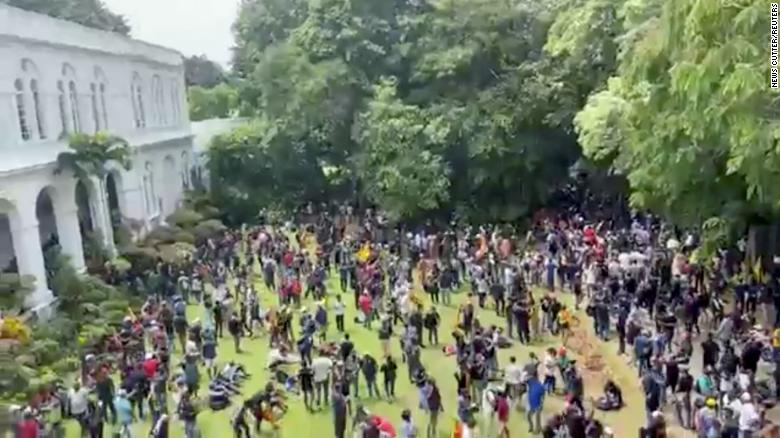
Also Read:
It is unclear how many security personnel are at the Sri Lankan leader's official residence, where more than 100,000 amassed outside, police said.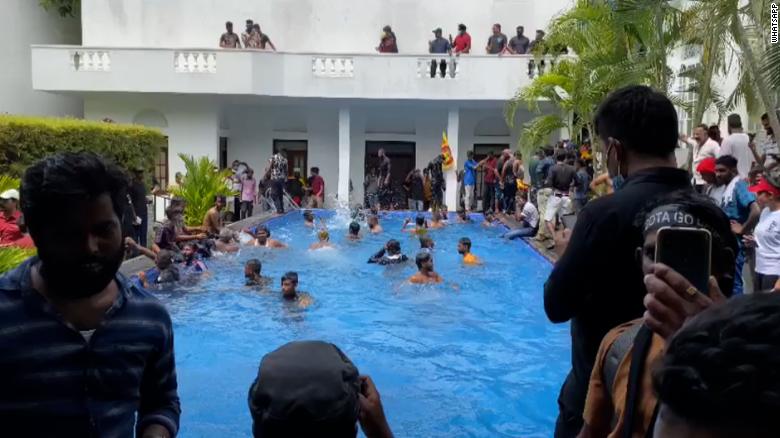 Protesters enter the pool in the presidential house in Sri Lanka. At least 31 people, including two police officers, have been injured in the protests and are receiving treatment, according to the National Hospital of Sri Lanka (NHSL).
Protesters enter the pool in the presidential house in Sri Lanka. At least 31 people, including two police officers, have been injured in the protests and are receiving treatment, according to the National Hospital of Sri Lanka (NHSL).
Two of the injured are in critical condition, according to police. Meanwhile, Prime Minister Ranil Wickremesinghe has called an emergency meeting of party leaders to discuss the current situation and come to a resolution, his office said on Saturday.
He's also asked the Speaker of Parliament to summon MPs.The South Asian nation of 22 million is suffering its worst financial crisis in recent history, leaving millions struggling to buy food, medicine and fuel.
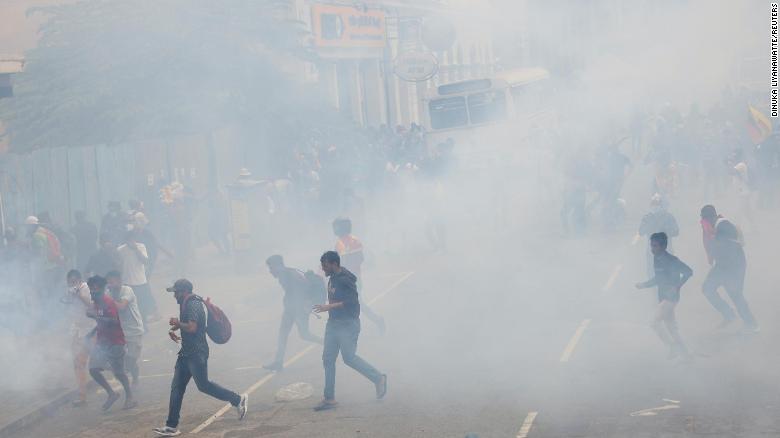
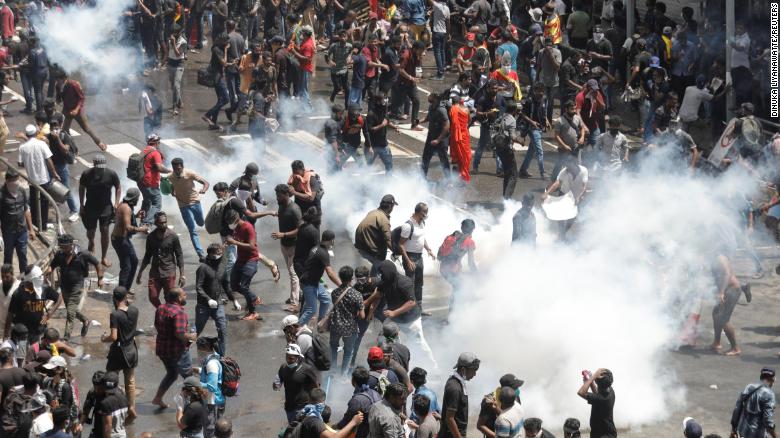 Demonstrators run from tear gas used by police during a protest demanding the resignation of President Gotabaya Rajapaksa near the president's residence in Colombo, Sri Lanka, on Saturday.
Demonstrators run from tear gas used by police during a protest demanding the resignation of President Gotabaya Rajapaksa near the president's residence in Colombo, Sri Lanka, on Saturday.
A police curfew that was earlier imposed in several police divisions in the Western Province of Sri Lanka was lifted on Saturday. Several politicians and the Bar Association in Sri Lanka referred to the curfew as being "illegal," saying there had been no instances of violence to justify imposing the measure.
Tens of thousands have taken to the streets in recent months, calling for the country's leaders to resign over accusations of economic mismanagement.
In several major cities, including Colombo, hundreds are forced to queue for hours to buy fuel, sometimes clashing with police and the military as they wait.
Images from Colombo paint a chaotic scene, with pictures showing demonstrators running from tear gas, and clashing with police in body armour.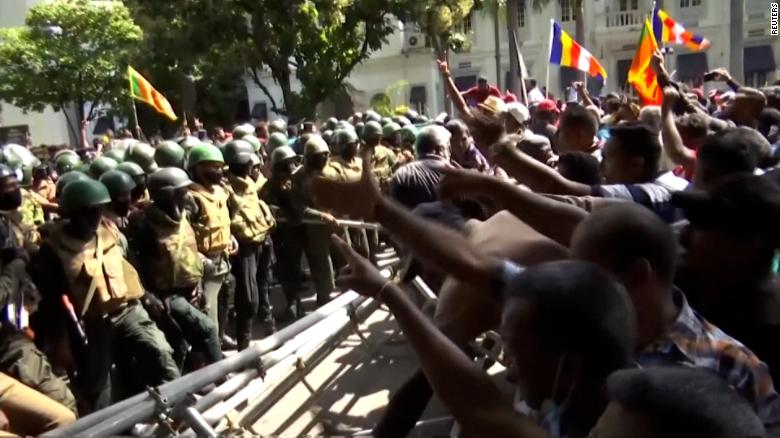
Heated scuffles erupted Saturday between police and angry protesters, as troops used tear gas and water cannons to push back demonstrators who breached security barriers.
have been suspended and fuel has been limited to essential services. Patients are unable to travel to hospitals due to the fuel shortage and food prices are soaring.
Trains have reduced in frequency, forcing travellers to squeeze into compartments and even sit precariously on top of them as they commute to work.
Wickremesinghe said the country had entered talks with the International Monetary Fund (IMF) to revive the country's economy.
This week, he told parliament that talks with the IMF were "difficult" as they entered the discussion as a "bankrupt" country, rather than a developing one.







